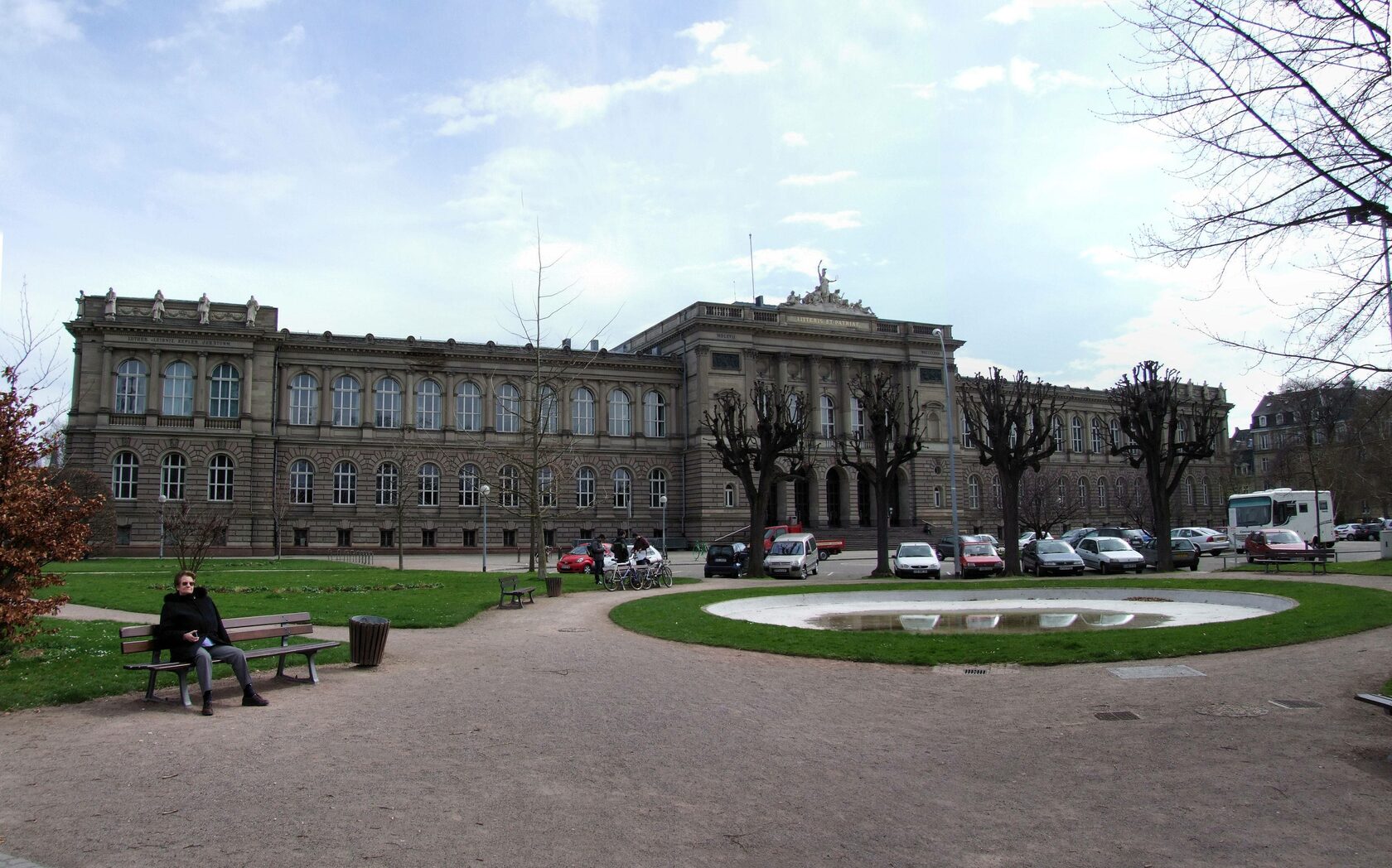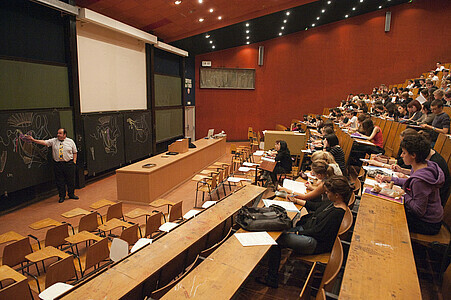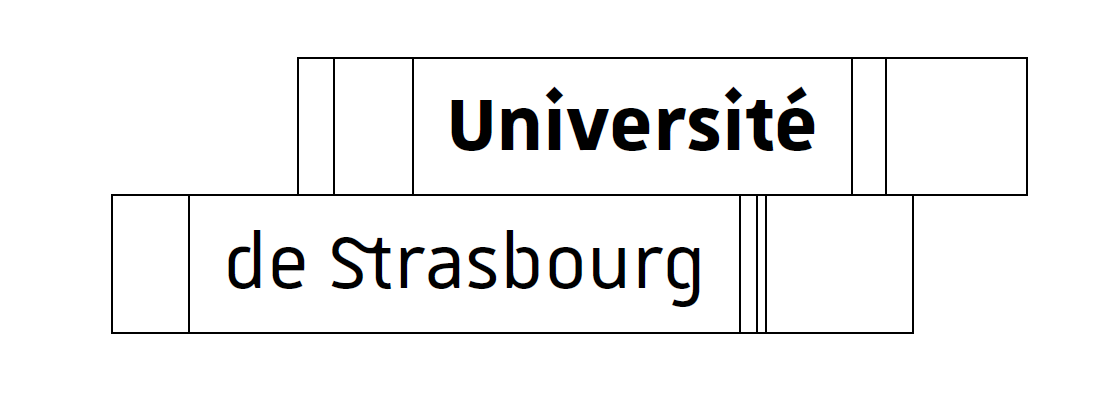ABOUT FRANCE
France is one of the most beautiful and interesting countries in Europe with a rich history and cultural heritage
France is one of the most beautiful and interesting countries in Europe with a rich history and cultural heritage. It is famous for its picturesque nature and cozy ancient cities, modern megacities and trendy resorts, world-class museums and exquisite cuisine.
Education in France is valued for its progressive approach to learning. Three local universities are among the world Top-100. 80% of students are satisfied with the quality of education and the demand for their diploma.
Find out more about how to graduate in France in our articles.
Education in France
Lean more about secondary education in France: how long does studies last, what subjects do students have and what types of schools exist.
According to the law, education in France is compulsory from 3 to 16 years. Secondary education (enseignement secondaire) is divided into two stages:
The first stage (le Collège) starts at the age of 11 and lasts 4 years. At this time, teenagers study a set of subjects standardized for all schools (French, a foreign language, art, music, art history, physical education, geography, natural sciences, mathematics, computer science). Additionally, they have the opportunity to choose optional classes in the following areas: foreign languages, languages and culture of Europe, languages and culture of Antiquity, choral singing. At the end of the fourth year of study, all students take an exam, after which they receive a diploma of completed secondary education.
The second stage (le Lycée) is also compulsory for most pupils, as the first one ends at the age of 15. The training lasts 3 years. High schools are divided into three types: general, technical and professional. The first academic year is the same for general and technical schools: students are taught the same set of subjects as in the initial stage of secondary school. In addition, they choose one elective subject from the list of general (languages, arts, physical education, ecology and agronomy) and one from the list of technical (management, health, mathematics, science, engineering).
General high schools (baccalauréat général). Starting from the second year, students can choose three of the twelve areas of study (arts, sciences, politics, health, mathematics, etc.). In the last year of the chosen three, they leave only two. A diploma obtained at the end of a general school does not provide employment opportunities, so graduates continue their studies at the university.
Technical high schools (baccalauréat technologique). Here are eight possible areas of study: management, hospitality, health, agronomy, design and applied arts, engineering, laboratory research, theater arts. Despite the applied orientation of specialties, graduates of technical schools after passing the exams also enter universities and higher schools to continue their education.
Professional schools (baccalauréat professionnel). Education here, depending on the direction, takes from two to three years. After the final exams, students receive a certificate of professional qualification (certificat d'aptitude professionnelle) or a diploma of graduation from a vocational school (brevet d'études professionnelles). This type of institution allows graduates to quickly find employment, but despite this, many continue their studies at specialized technical universities.
According to the law, education in France is compulsory from 3 to 16 years. Secondary education (enseignement secondaire) is divided into two stages:
The first stage (le Collège) starts at the age of 11 and lasts 4 years. At this time, teenagers study a set of subjects standardized for all schools (French, a foreign language, art, music, art history, physical education, geography, natural sciences, mathematics, computer science). Additionally, they have the opportunity to choose optional classes in the following areas: foreign languages, languages and culture of Europe, languages and culture of Antiquity, choral singing. At the end of the fourth year of study, all students take an exam, after which they receive a diploma of completed secondary education.
The second stage (le Lycée) is also compulsory for most pupils, as the first one ends at the age of 15. The training lasts 3 years. High schools are divided into three types: general, technical and professional. The first academic year is the same for general and technical schools: students are taught the same set of subjects as in the initial stage of secondary school. In addition, they choose one elective subject from the list of general (languages, arts, physical education, ecology and agronomy) and one from the list of technical (management, health, mathematics, science, engineering).
General high schools (baccalauréat général). Starting from the second year, students can choose three of the twelve areas of study (arts, sciences, politics, health, mathematics, etc.). In the last year of the chosen three, they leave only two. A diploma obtained at the end of a general school does not provide employment opportunities, so graduates continue their studies at the university.
Technical high schools (baccalauréat technologique). Here are eight possible areas of study: management, hospitality, health, agronomy, design and applied arts, engineering, laboratory research, theater arts. Despite the applied orientation of specialties, graduates of technical schools after passing the exams also enter universities and higher schools to continue their education.
Professional schools (baccalauréat professionnel). Education here, depending on the direction, takes from two to three years. After the final exams, students receive a certificate of professional qualification (certificat d'aptitude professionnelle) or a diploma of graduation from a vocational school (brevet d'études professionnelles). This type of institution allows graduates to quickly find employment, but despite this, many continue their studies at specialized technical universities.
Education in France is valued for its progressive approach to learning. Three local universities are in the world Top-100. Foreigners an enter all universities in the country, including those located in overseas French territories.
Higher education in France

Price
You can study in French at state universities for 3,036 USD / year for a bachelor's degree and for 4,132 USD / year for a master's degree. English-language programs cost from 4,384 USD/year at a public university and from 6,576 USD/year at a private one.

Requirements
You can enter the bachelor's degree after the 11th grade. It will be good to have a GPA of at least 4 out of 5. Documents are submitted to most public universities via the Études en France portal. Application deadlines: until mid-January - for undergraduate programs (max. 3 programs), before the beginning of March - for master's programs (max. 7 programs). In private universities, applications are submitted directly. Submission deadlines vary.

Language
or admission you need a certificate of proficiency in English (IELTS / TOEFL) or French (DELF / DALF) at a level not lower than B2.
Main advantages of studying in France
Low cost. Since September 2019, France has introduced an additional fee for studying in French for students from non-EU countries. But even taking this into account, the cost of education is still quite democratic. It should be noted that this applies only to public higher schools. Private grandes écoles are free to set their own tuition prices.
Student satisfaction. 80% of students who studied at French universities are satisfied with the quality of education and the demand for their diploma. 9 out of 10 foreign students highly appreciated the time spent here and recommend France as a place of study.
International Center. France is home to 28 of the top 500 international companies. Many of them are leaders in their sector: Total (energy); Orange (telecommunications); Sanofi (health); LVMH (luxury goods); L'Oréal (cosmetics); Danone (food). Each company offers students a unique internship opportunity.

Disadvantages of studying in France

University funding. France spends USD 7,343 per year per student at a public university. At the same time, up to 14,248 USD per year can be spent per student grande école. Despite the fact that only 5% of all students study in higher schools, about 30% of the state's educational budget is spent on them. This results in poor classrooms at state universities, low technical equipment and an almost complete absence of teaching materials.
Class overcrowding. French universities are required to admit all eligible students for their first year of study. Too many students lead to class overcrowding. Due to funding problems, some students simply have nowhere to sit, lectures have to be broadcast in several lecture buildings, and problems with technology in this case can leave half of the students without any educational information.
High level of deductions. In different universities, this figure ranges from 20 to 70%, which is incredibly high compared to the Russian and Anglo-Saxon systems. The ease of admission to a French university disguises large amounts of study material and a strict grading system.
Professional education
There are several professional education options in France that are equivalent to European colleges:
Prospects and employment opportunities
In France, the problem of employment is vexed: more than half of young people aged 25-29 are not employed. The unemployment rate in France is 8%. Even with knowledge of French, it will not be easy for a foreigner to find official employment here. A work permit, a social security number, tax registration—each form entails even more forms. Visitors complain that it is also difficult to get help from local administrative bodies: it is much easier for many employees to send a helpless foreigner to “another office” than to deal with his problems. 27% of the French themselves leave their homeland in order to seek employment in other countries.
In Europe.
The diploma of a French university is highly valued at the international level in connection with the program of the Bologna process, which aims to converge the standards of education in all European countries. Particularly prestigious are the diplomas of French polytechnic schools and metropolitan universities. However, in addition to a diploma for employment in European companies, it is equally important to have references, professional skills and an excellent resume.
In Russia and the CIS countries.
Graduates of European universities are highly valued in the post-Soviet space. Accordingly, a French university diploma opens up excellent employment opportunities in the commercial sector, especially in representative offices of European companies in the CIS countries.
Academic career.
A master's degree opens up opportunities for admission to doctoral studies. This applies not only to universities in France, but also to universities around the world. The main indicators for successful admission will be the recommendations of professors and the relevance of the research project.
1
2
3
Admission Open
OUR PARTNERS




Get a free lesson
Just type your contacts
It's totally free

Higher education in France
Education in France is valued for its progressive approach to learning. Three local universities are in the world Top-100. Foreigners an enter all universities in the country, including those located in overseas French territories.
Price. You can study in French at state universities for 3,036 USD / year for a bachelor's degree and for 4,132 USD / year for a master's degree. English-language programs cost from 4,384 USD/year at a public university and from 6,576 USD/year at a private one.
Requirements. You can enter the bachelor's degree after the 11th grade. It will be good to have a GPA of at least 4 out of 5. Documents are submitted to most public universities via the Études en France portal. Application deadlines: until mid-January - for undergraduate programs (max. 3 programs), before the beginning of March - for master's programs (max. 7 programs). In private universities, applications are submitted directly. Submission deadlines vary.
Language. For admission you need a certificate of proficiency in English (IELTS / TOEFL) or French (DELF / DALF) at a level not lower than B2.
Visa. The applicant's account must have funds at the rate of at least 674 USD/month (8,088 USD/year). It is also necessary to confirm the availability of housing for the first 3 months.
Work after school. Graduates of professional bachelor's or master's programs can obtain a one-year visa for searching work in France. It allows you to work 60% of the time from full time until the graduate finds a permanent job to apply for a residence permit.
Price. You can study in French at state universities for 3,036 USD / year for a bachelor's degree and for 4,132 USD / year for a master's degree. English-language programs cost from 4,384 USD/year at a public university and from 6,576 USD/year at a private one.
Requirements. You can enter the bachelor's degree after the 11th grade. It will be good to have a GPA of at least 4 out of 5. Documents are submitted to most public universities via the Études en France portal. Application deadlines: until mid-January - for undergraduate programs (max. 3 programs), before the beginning of March - for master's programs (max. 7 programs). In private universities, applications are submitted directly. Submission deadlines vary.
Language. For admission you need a certificate of proficiency in English (IELTS / TOEFL) or French (DELF / DALF) at a level not lower than B2.
Visa. The applicant's account must have funds at the rate of at least 674 USD/month (8,088 USD/year). It is also necessary to confirm the availability of housing for the first 3 months.
Work after school. Graduates of professional bachelor's or master's programs can obtain a one-year visa for searching work in France. It allows you to work 60% of the time from full time until the graduate finds a permanent job to apply for a residence permit.



